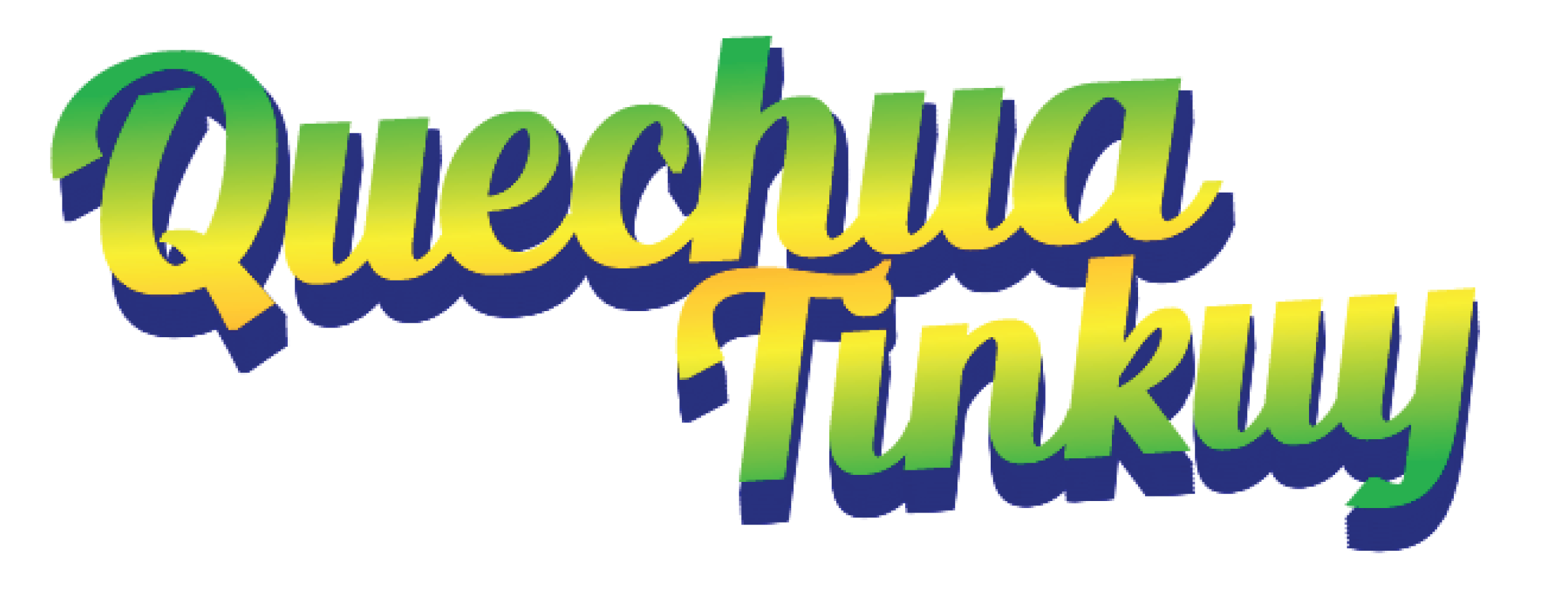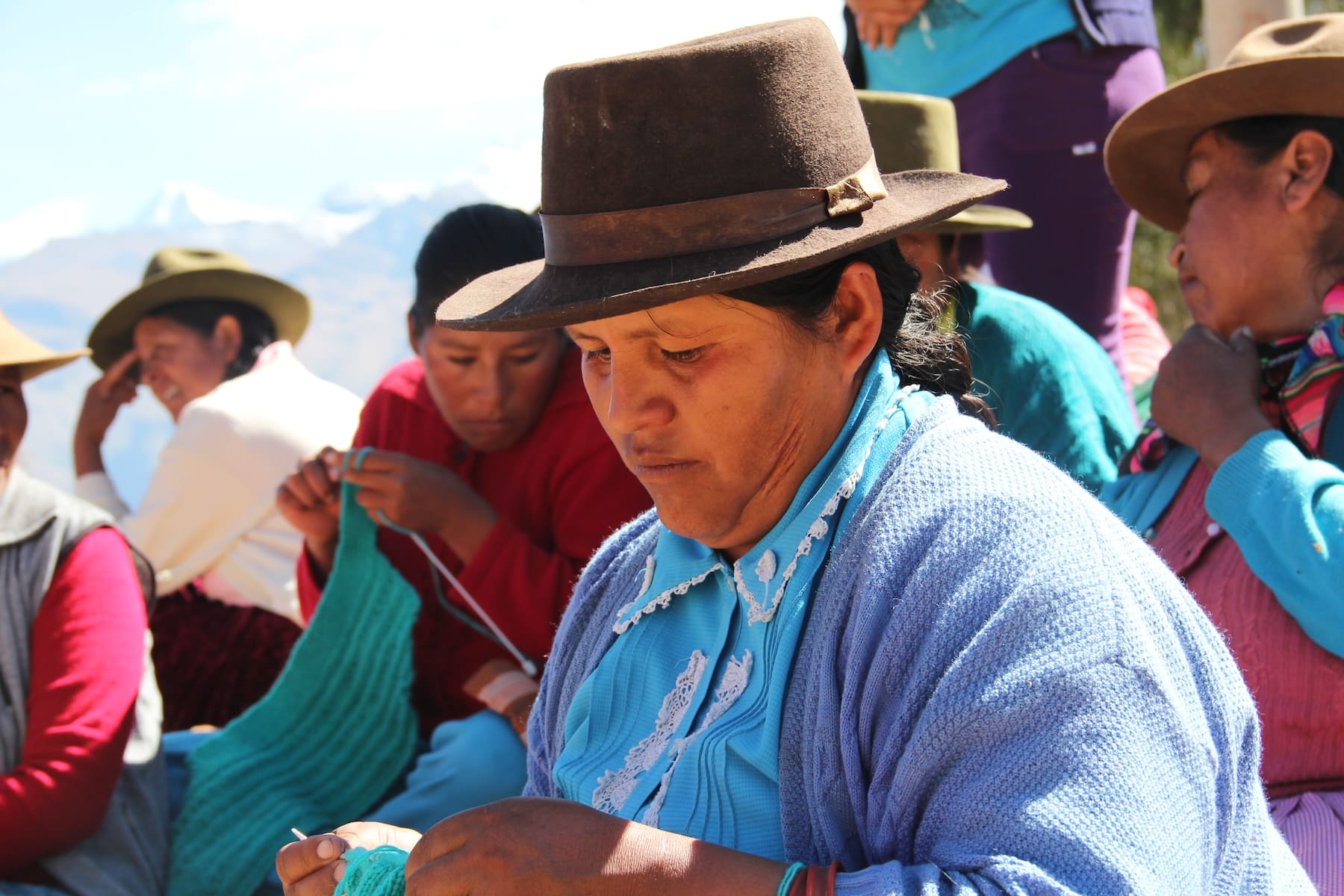
Qallarinapaq | Introduction
In this unit we will learn how to express something that we are doing in a progressive manner, that is, something that is in process in an action that has not concluded. We call this the progressive or in Quechua, unaychaq.
Ready?
¡Qallarisun! / Let's get started!

Qillqa | Grammar
To indicate the progressive or durative in Quechua we use the suffix –sha which is placed immediately after the verbal root. For example, the word puriy, to walk, the verbal root is puri. To say that I am walking (a progressive action) I should add the suffix –sha to the verbal root and then mark that the verb is first person singular –ni. Because of this, the word becomes purishani which means 'I am walking'.
The progressive allows us to express the idea of an event that is in progress. This progress can be in the present tense, past tense, or future tense. That is, the action has not concluded, is in the process of execution, for this we use the progressive aspect.
Remember. In Unit 10, Yachana 10we learned the basics of the progressive tense for present actions.
In order to review that we have learned, let's look at how we can use the progressive in the three verbal tenses with each of the personal pronouns.
Let's begin with the present tense by conjugating the verb puriy, 'to walk'. For this, we follow the rule of adding verbal suffixes to the verbal root. First, to the root puri we add –sha. Second, we add the verbal marker for the person that does the action. For example, for the first person we can follow this process: puri-sha-ni, which means 'I am walking'.
Now let's look at this conjugation of this verb with different personal pronouns in the present tense:
| Ñuqa Purishani | I am walking |
| Qan Purishanki | You are walking |
| Pay Purishan | He/she/it is walking |
| Ñuqayku Purishayku | We are walking (exclusive) |
| Ñuqanchis Purishanchis | We are walking (inclusive) |
| Qankuna Purishankichis | You all are walking |
| Paykuna Purishanku | They are walking |
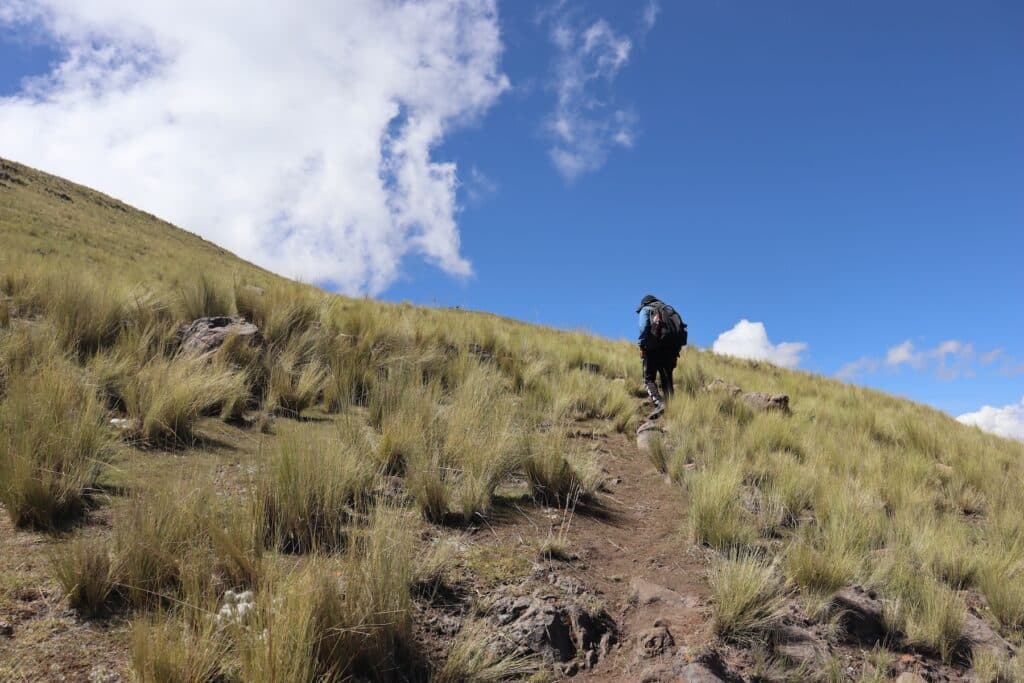
Now let's look at the simple or experienced past conjugating the verb mikuy, 'to eat'. For this, we follow the rule of adding the suffixes to the verbal root. First , to the root miku we add –sha. Second, we add the experienced past marker –rqa. Finally we add the verbal marker of the person that is doing the action. For example, for the first person we can follow this process: miku-sha-rqa-ni, which means 'I was eating'.
Now we will look at the conjugation of this verb with different personal pronouns in the experienced past:
| Ñuqa mikusharqani | I was eating |
| Qan mikusharqanki | You were eating |
| Pay mikusharqan | He/she/it was eating |
| Ñuqayku mikusharqayku | We were eating (exclusive) |
| Ñuqanchis mikusharqanchis | We were eating (inclusive) |
| Qankuna mikusharqankichis | You all were eating |
| Paykuna Purisharqanku | They were eating |
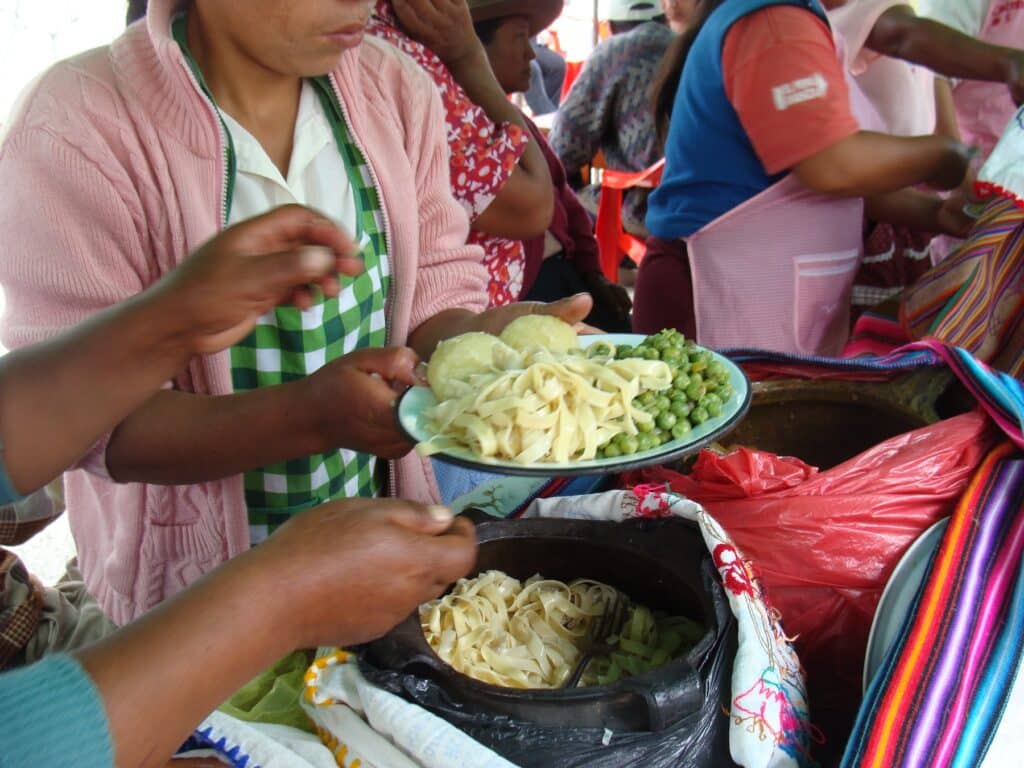
Now we will conjugate the verb waykuy, 'to cook' in the future tense, that is, something that has not happened. For this, we will follow the rule of adding the suffixes to the verbal roots. First, to the root wayku we add –sha. Second, we will add the future tense marker according to each personal pronoun. For example, for the first person we can do this process: wayku-sha-saq, which means 'I will be cooking'.
| Ñuqa waykushasaq | I will be cooking |
| Qan waykushanki | You will be cooking |
| Pay waykushanqa | He/she/it will be cooking |
| Ñuqayku waykushasaqku | We will be cooking (exclusive) |
| Ñuqanchis waykushasunchis | We will be cooking (inclusive) |
| Qankuna waykushankichis | You all will be cooking |
| Paykuna waykushanqaku | They will be cooking |
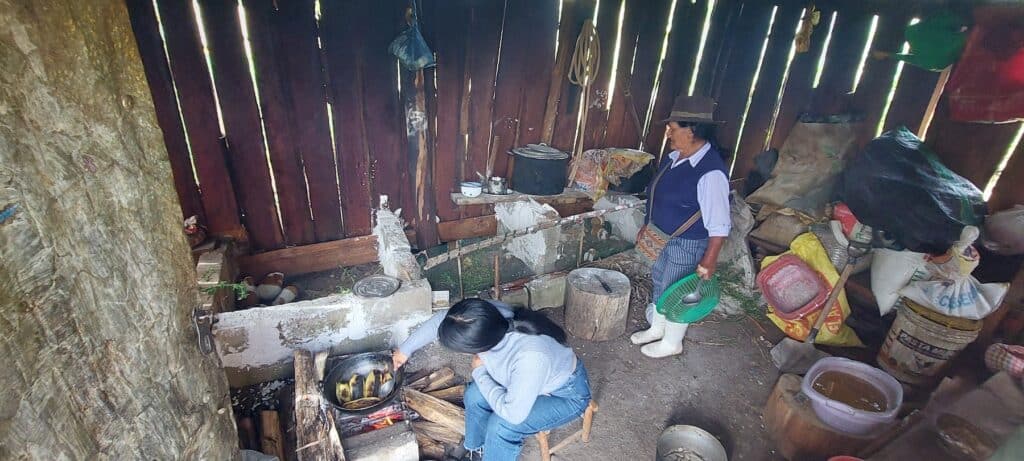
So, the progressive is a suffix that we add to the verbal root to express an action that is in progress, that is, not finished.
Now let's look at different examples of the uses of the progressive in different verbal tenses.
Let's look at the following examples:
| Arturo Curahuasipi papata allashan | Arturo is digging potatoes in Curahuasi |
| Mamay Pampawachupi apichuta tarpushan | My mom is sowing sweet potatoes in Pampawachu |
| Kabrakunata Pukyurapi michishani | I am grazing goats in Pukyura |
| Raulcha Puca Pucapi qayna wata papata llamk’asharqa | Raúl was producing potatoes last year in Puca Puca |
| Manuel wataman sarata akllashanqa | Manuel will be choosing the corn next year |
| Mamayqa papata qarpashan | My mom is watering the potatoes |
| Sullk’ayqa pampapi pukllasharqan | My little sister was playing in the plain |
| Chay maqt’akuna chakrata yapushanku | Those young people are plowing the chakra |
| Ñuqayku carnavalpi tusushayku | We are dancing in the carnivals |
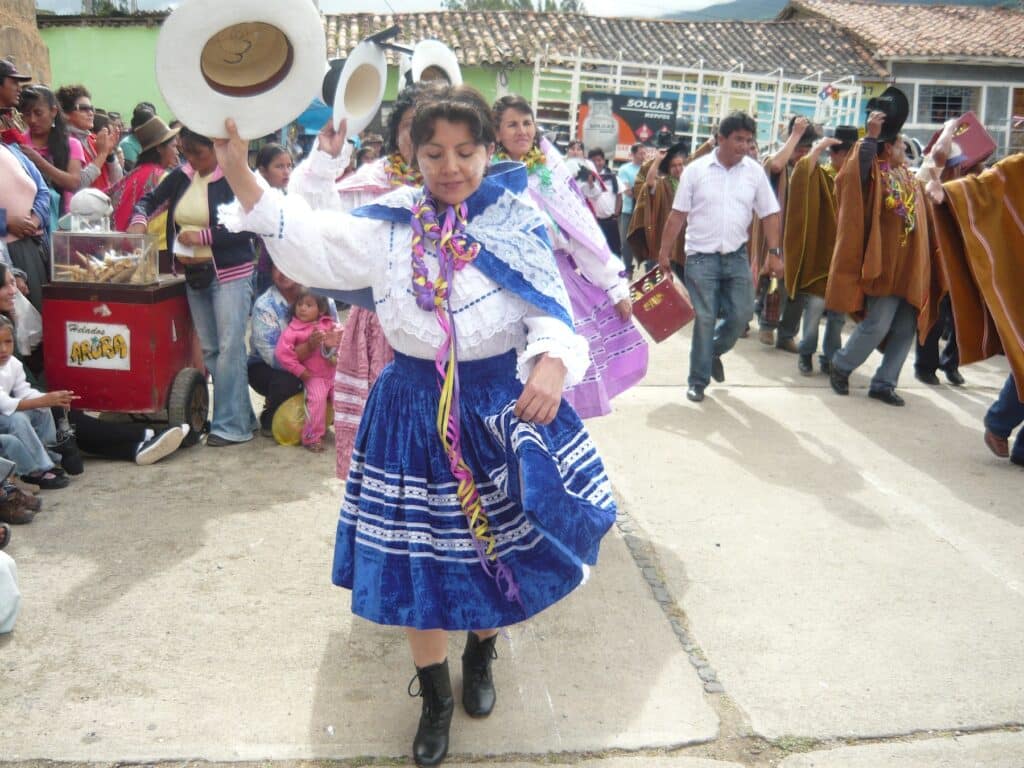

Rimanakuna | Vocabulary
| Apichu | sweet potato |
| Quwi | guinea pig |
| Qarpay | to water |
| Allway | to howl |
| Waqay | to cry |
| Qaray | to feed |
| Ichhu | Grass |
| Ukuku | Bear |
| Huk’ucha | Mouse, rat |
| T’uqu | hole |
| Allchay | to fix |
| Chimpa | In front |
| Llamkapakuy | to work |
| Masa | a pair of plowing bulls |
| Qhatu | store |

Ruwapakuy | Exercises
Now let's practice using the progressive for distinct actions that are being realized, were being realized, or will be realized.
Write 5 sentences of things that you are doing in the present and that have a prolonged duration in time. For example, you can say Ñuqa Quechuata yachakushani 'I am studying Quechua.' This action is prolonged over time because it means that you are learning the language. You can have started last year and you will continue until the next year.
You can add more examples like:
Wasiypi papa wayk’uta ruwashani
P’achayta maqchishani
Anista llamk’ashani kay watakunaqa
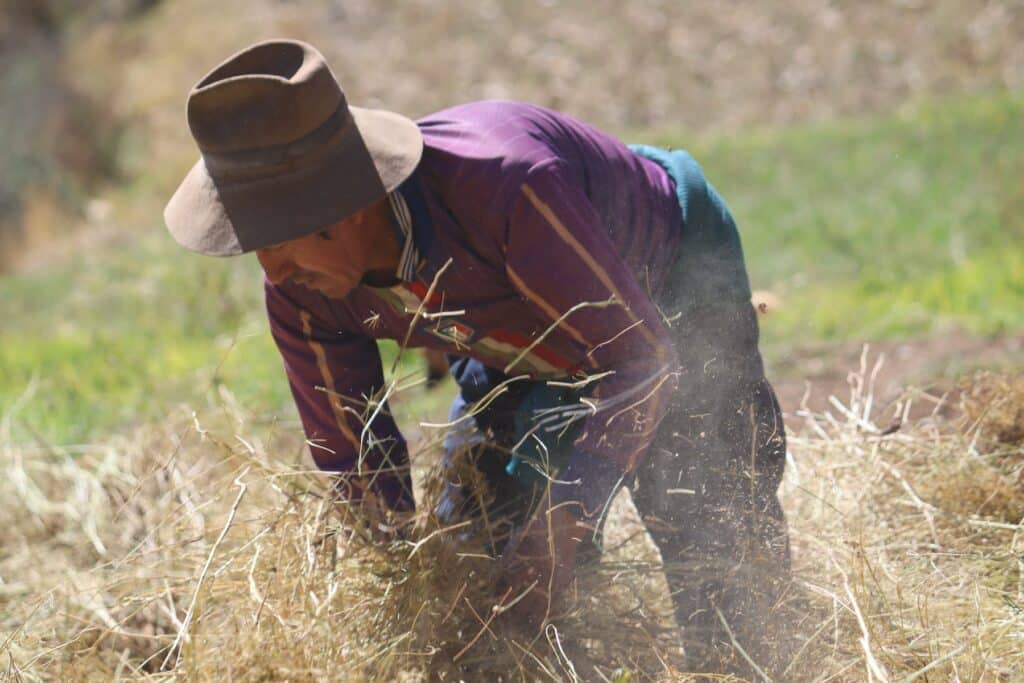
Write 5 other sentences of the things that you were doing in the past and had a prolonged duration over time.
You can add more examples like:
Apurimacpi llamk’asharqani
Achka quwichakunata uywasharqani qayna watakunaqa
Paulinaqa wakakunatam michisharqa
Write 5 other sentences of the things that you will be doing in the future and have a prolonged duration over time.
You can add more examples like:
Taytayta yanapashasaq qhatunpi
Yanaywan musuq wasita rantishasaqku
Wawaykunata uywashasaq Qusqupi

Qawasunchik | Videos
Now let's look and listen to the use of the progressive in the following videos.
Show Video Transcript: Golondrina tells us about her experiences.
Ayyy, kay chikantin allqu allintapunin allwashan, imaynaraq kasunpas, imachá pasanqapas.
¿Imanaqtintaq kay kuchikunari waqashan? Manachá riki mikunata qarankuchu, yarqayushanchá riki pobre kuchikunataqa.
Ayyy, haqay urqu patapitaq kay llamakunaqa mikushasqa, tarinchari riki paykunaqa ichhutataqá mikunkuqá.
Ayyy, kay maistrukuna kay munay wakakunaqa sumaqtamá riki chakrataqa riki yanayachishanku kay vicinuypapi.
Haqay chimpapi urqupiraqsi kimsa ukukuna purishasqa.
Ayyy, kay huk’uchachakunaqa munatam kay t’uqunkuman haykurapusqaku, chaypin samakushanku hawka.
Kunan kay punchaw llamkasqaymanta hamushani. Nuqa llamkani mecadupi, sapatukunata allchamuni. Allchamuni, chaymanta llamkasqaymanta hamushani, kunan cena waykunaypaq. Cenayta waykusaq yaqaña qusay chayaramunqaña chakramanta.
Show Video Transcript: Albertina and Noemi have a conversation using the progressive.
Albertina: Wawáy Noemí ¿Imaynallan kashanki? ¿Sumaqllachu allillanchu?
Noemí: Mamáy Albertina Ñuqaqa allinllan kashani, ¿Qanri imaynallataq mamáy kashanki?
Albertina: Allinllan wawáy kashani ñuqaqa, ¿Manachu Franciskuta kanan punchaw rikurqanki?
Noemí: Rikunin mamáy Franciskutaqa. Kunan tutamantan rikuni, waq chimpa chakrapin llamkapakusharqan.
Albertina: ¿Pitataq wawáy Noemí Franciskuri yanapashan?
Noemí: Franciskuqa Pablotan yanapashan. Pabloqa chakratan yapushan kimsa masakunawan. Manan runan karanchu chaymi Francisku yanapashan. Kunanmi Pablo sarata frijultawan tarpushan.
Albertina: Chhaynaqa tukuy punchawchá riki Franciskuqa Pabluta yanapanqa. Gracias wawáy Noemí. Tupananchiskama wawáy.
Noemí: Tupananchiskama mamáy.
Show Video Transcript: Albertina and Angel have a conversation using the progressive.
Angel: Panáy Albertina. ¿Imaynallan kakushanki?
Albertina: Hermanúy Angel allillanmi kashani, ¿Qanri?
Angel: Allillanmi kashani Albertina, ¿Imatan chakraykipi ruwashanki Albertina?
Albertina: Papatan qarpashaniku runaypiwan, nishutan ruphamushan kay p’unchawkuna, chaymi kunan p’unchaw qarpashaniku, ¿Qanri imatataq ruwashanki Angel?
Angel: Ñuqaqa wakata uwijakunakunata ima michishani Albertina.
Albertina: Kusa Angel, tupananchiskama.
Angel: Tupananchiskama Albertina.
